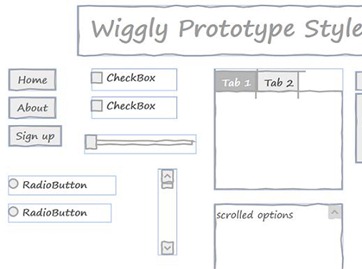The Role of Sketching in Software Development
It only been since 2006 that we seriously started to drive WPF adoption, and Silverlight 2 hit the web just a scant 11 months ago. Still, in such short time ISVs have created some amazing things with these platforms.
Unfortunately, though the platforms themselves have seen some serious adoption, inclusion of design in the software development lifecycle still has a long way to go.
The good news is that methodologies and best practices are starting to emerge and I look forward to some great articles on the subject over the coming months. I’ve personally had the opportunity to present on this topic with one of our User Experience Evangelists, Sara Summers, and we cover something every ISV can add to their methodology: Sketching.
Sketching isn’t hard and anyone can do it (though I’ll freely admit I was uneasy at first drawing my little stick figures next to what felt like Sara’s “creative art”). But the point of a sketch isn’t how well it’s drawn; it’s how well the sketch captures a moment or an experience for a user in an application.
Sketches are informal. They’re lightweight, and they can be thrown away. Sketches can be used throughout the development process and, when used correctly, can significantly reduce the need to revisit code that’s already complete. People need to see and ‘feel’ an application before they can accept its design, but unfortunately it’s costly and time consuming to build interactive user interfaces that will just be thrown away. That’s why we so often end up with ‘bugs’ or feature requests involving design after an iteration goes to QA.
Sketches help people see the vision of an application and interactive sketches help the user ‘feel’ how it will work. These alone solve many of the problems that exist in application design today, but there’s still the costly issue of building interactive UI that can’t be reused. Luckily, with Expression Blend 3, tools are on the way to help with reuse.
On her blog Sara talks about Why Static Wireframing is Dead or, to put it another way, why static sketches shouldn’t be “good enough”. She also does a great job introducing SketchFlow with Non-Destructive Iterative Design and Fast and Easy Interactivity. Finally, if you haven’t yet seen SketchFlow in action, the Mix ’09 session SketchFlow: From Concept to Production is definitely worth a watch.
Comments
- Anonymous
May 26, 2009
PingBack from http://asp-net-hosting.simplynetdev.com/the-role-of-sketching-in-software-development/
